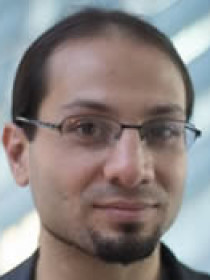
Tal Peretz
Connect with Tal
About Tal
Peretz's research focuses on men's anti-sexist and anti-violence activism, through an intersectional feminist lens. Overarching themes in Peretz's writings include masculinity norms, violence prevention strategies and programmes, intersecting social identities (race, class, gender, sexuality, religion, etc), feminist theory and social movements.
Contributions
A Letter to Aspiring (Male) Feminists
In the News
Publications
Develops a model for theorizing about intersectionality, space and place, social movements and activism, and contemporary feminism, as well as contributing to knowledge about activism in the understudied context of the Southern city.
Discusses men's relationships to gender-based violence (GBV) which have long been an area of sociological inquiry, but until recently men have primarily been framed as perpetrators of violence against women. Describes recent research on men and GBV and how it has broadened to include studying men as victims/survivors, as investigators and law enforcement officers, as passive or active bystanders, and as allies in working to address this social problem.
Investigates the complex ways some men do see, understand, and critique male privilege, as well as the ambivalent feelings and strategic decisions of both the men and women in response to the continuation of male privilege in feminist spaces
Reviews existing research in the critical study of men and masculinities to put forward five mutually reliant reasons why studies of men and masculinities are necessary for understanding gender relations and beneficial for feminist projects for gender justice.
Substantiates men who engage in feminist activism sometimes become aware of their own male privilege in the process; specifically, they find they receive excess and undue praise, gratitude, attention, and promotion relative to women.
Outlines how men's anti-sexist organizations often fall short of inclusivity in their work, failing to engage men across a variety of intersecting identities. Identifies these shortcomings sometimes lead to the reactionary formation of offshoot groups targeting specific identities; Muslim Men Against Domestic Violence and the Sweet Tea Southern Queer Men's Collective are investigated as illustrative examples.
Explains that the Men's Story Project, a public personal narrative-sharing social change programme, is effective at producing audience reflection and behavioral change. Discusses how specifically, audience members who participated in focus groups reported more diverse understandings of masculinity, more critical understandings of the connections between masculinity and other identities, and less enforcement of rigid gender norms.
Highlights the Men's Story Project, a public personal narrative sharing social change programme, showing evidence of such programs as potentially effective at challenging and critiquing hegemonic masculinity.